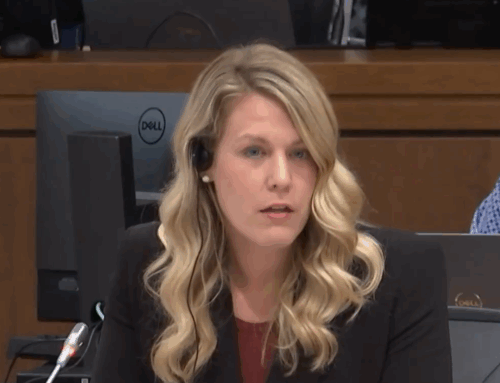Few incidents offer a better snapshot of modern discourse than the recent exchanges surrounding ordo amoris. That Latin phrase can be translated as “the order of love,” a concept which has had currency in Christian theology since it was formulated in late antiquity by St. Augustine, and was further refined, almost a millennium later, by St. Thomas Aquinas. In the 20th century, it received new attention—and new applications—by a pair of German philosophers, Max Scheler and Dietrich von Hildebrand. Early in 2025, it burst into contemporary awareness because the Vice President of the United States of America, JD Vance, engaged in a testy interaction with a British public intellectual on social media.
The former Tory MP, Rory Stewart, had tut-tutted about a statement Vance offered in an interview about the Christian framework guiding his administration’s policy on border security. Vance described this approach: “that you love your family and then you love your neighbor, and then you love your community, and then you love your fellow citizens, and then after that, prioritize the rest of the world.” Stewart’s hectoring of Vance is what then occasioned the invocation of the term ordo amoris. A flurry of comments followed, and the debate reached a kind of crescendo with Pope Francis himself weighing in via a letter to the U.S. Bishops. Thus, what began as a Twitter spat ended with the supreme prelate of the Catholic Church issuing an epistle to the American episcopate. Such is the age in which we live.
In his letter, the late Pope Francis wrote that the “true ordo amoris” can be discovered in the parable of the “Good Samaritan,” which illustrates a “love that builds a fraternity open to all, without exception.” This parable, however, is an odd one to invoke by way of rejoinder, for the story in which a man traveling from Jerusalem to Jericho is beset by bandits, is, among other things, a stinging indictment of clerics and those in authority. It is, after all, a priest and a Levite—a member of Israel’s priestly tribe—who first side-step the wounded man and go about their business. The Samaritan is only able to showcase his goodness because of the prior failure of ecclesiastical figures. As it becomes clear that Catholic and Lutheran charities played a key role in facilitating the erstwhile border crisis in the United States—a role underwritten by Biden administration’s funding of these religious NGOs—the parallel with the parable becomes even less flattering.
It is no accident that Vance’s précis of the “order of love” echoes a famous statement by one of the greatest humanitarians of the last century. In 1979, Mother Teresa concluded her acceptance speech for the Nobel Peace Prize with the following postulate: “if we really believe” that, in the poor we find Christ, “we will begin to love. And if we love, naturally, we will try to do something. First in our own home, our next-door neighbor, in the country we live, in the whole world.” Mother Teresa’s vision of an ever-expanding circle of charity affirms love’s nearly omnipotent power to shrink distances and make everyone on earth a potential object of affection—if not materially then spiritually. But it also illustrates Augustine’s conception of God, who is closer to us than we are to ourselves: God is our first, primary, and impossibly proximate Neighbour, the centre of the centre of charity’s inexhaustible circle.
Nor is it a coincidence that the same diminutive, clear-sighted, and saintly missionary, who travelled the world to minister to the world’s poorest and most miserable, was absolutely prophetic in her statements about abortion. Mother Teresa identified abortion as the “greatest destroyer of peace today … because it is a war against the child, a direct killing of the innocent child, murder by the mother herself.” She spoke those words over 30 years ago, in 1994, at the National Prayer Breakfast in Washington D.C. As someone who became renowned for the good that she did in the world, it is telling that, given the opportunity—as the tired phrase has it—to speak “truth to power,” she used her pulpit to decry the most pernicious evil, and the most perilous threat, that she could.
Although pro-lifers can find some comfort in the debate that ensured about ordo amoris insofar as its central question concerned how Christian teachings should apply to public policy (which, on balance, is a good debate to have) those who are convicted about the uniquely iniquitous evil of abortion might also feel some justified exasperation in the face of this kerfuffle. Why the fuss about the ordering of loves when the order of evil is a far more pressing concern? Why should a tug-of-war between border security and humanitarian aid preoccupy the public attention when the horror of prenatal infanticide, and its truly staggering scale, goes unmentioned? The World Health Organization estimates that 73 million induced abortions are now inflicted globally each year—which means there are, on average, 200,000 abortions every day.
The looming threat of global nuclear war; the dire needs of refugees, the homeless, the poor, the addicted, and the dispossessed; the possibility that a panic in financial markets will trigger a global financial collapse—none of these dire situations should be ignored. But how can the ongoing moral conflagration of abortion be anything less than our absolute highest priority? How can a seemingly civilized society tolerate this enduring barbarism inflicted on its most vulnerable? And how do our leaders not perceive the direct connection between this moral obscenity and the evils by which the nations of the world are beset? Why do they not draw the link between God’s protection and adherence to His law?
Mother Teresa ended her speech at the Prayer Breakfast with this exhortation: “Let us love one another as God loves each one of us. And where does this love begin? In our own home. How does it begin? By praying together.” Just as love begins in the home, so too does our age’s most outrageous moral transgression; for abortion violates what should be the human person’s most sacred and safest sanctuary: the womb. Until peace returns to that interior enclosure that the modern world has made a war zone, all of the orderings of love that our leaders might offer will not be securely founded. By the same token, peace in the womb will allow love to spread, and this peace, in turn, is what may permit the great threats which menace us to be averted.




